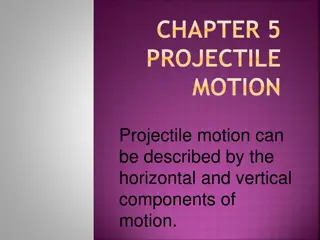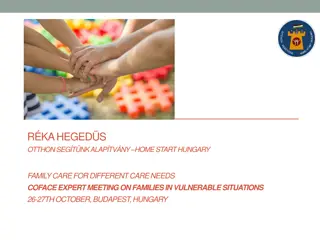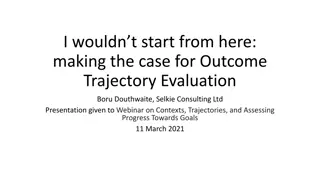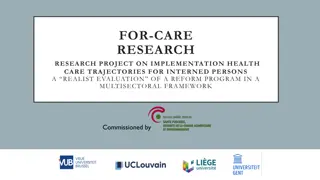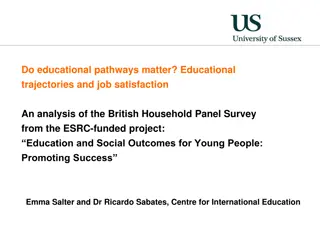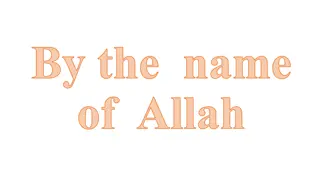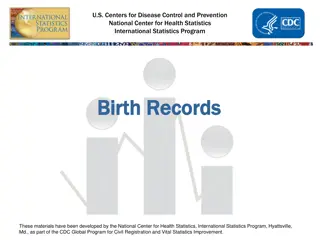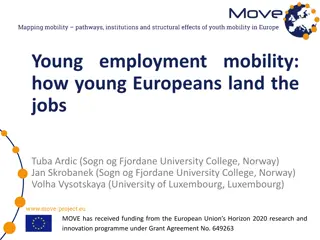Insights from BCS70 Study: Births, Families, and Cognitive Trajectories
The British Cohort Study of 1970 (BCS70) provides valuable data on over 17,000 babies born in the UK. The study covers various aspects such as childhood development, family formation, and adult identity. Key findings include early unequal cognitive trajectories and high mental distress among cohorts. The study's policy relevance is evident in mental health interventions, career advice, and youth policies. Recent findings and sources of information further contribute to understanding societal trends.
Download Presentation

Please find below an Image/Link to download the presentation.
The content on the website is provided AS IS for your information and personal use only. It may not be sold, licensed, or shared on other websites without obtaining consent from the author. Download presentation by click this link. If you encounter any issues during the download, it is possible that the publisher has removed the file from their server.
E N D
Presentation Transcript
4th June 2018 David Bann
Brief Overview of BCS70 Data collected about births and families of just over 17,000 babies born in England, Wales, Scotland and Northern Ireland in one week in 1970 N.Ireland members not followed up after birth (unless moved to mainland) Early focus was medical & has broadened : Childhood : educational and physical development into adulthood: Family formation, employment... Formation and maintenance of adult identity
Early unequal (cognitive) trajectories 100 90 Average position in the distribution 80 High SES; high early rank 70 60 High SES; low early rank 50 Low SES; high early rank 40 Low SES; low early rank 30 20 10 0 22 28 34 40 46 52 58 64 70 76 82 88 94 100 106 112 118 Age in months Evidence from BCS70 showing that many bright children from poor families were overtaken by less able children from affluent backgrounds by age 6 was included in the Every Child Matters Green Paper in 2003 and helped to underpin the case for greater investment in pre-school provision. Feinstein, 2003 see also Jerrim & Vignoles, 2012
High mental distress (Malaise) 1958 and 1970 cohorts at 42 Men (1958) 9% Men (1970) 14% Women (1958) 14% Women (1970) 16% 0% 2% 4% 6% 8% 10% 12% 14% 16% 18% Ploubidis et al 2017 Sacker & Wiggins, 2002
Policy relevance Mental health - Half of those with mental health problems at age 26 developed a psychiatric disorder by age 34. Policy-makers responded to this finding with a commitment to early intervention aimed at promoting better mental health and wellbeing. Careers advice - Research showing how prolonged periods of being out of education, employment or training after leaving school have long-term negative consequences for employment and mental health featured in 1999 Social Exclusion Unit report, Bridging the Gap, which led to the creation of the Connexions service. Youth policy - The government s Youth Matters policy, launched in 2005 to improve local facilities for teenagers, was based partly on BCS70 evidence showing that teenagers involvement in structured leisure activities can have lasting benefits.
Sources of information 1970 Birth 1975 1980 10 1986 16 1996 26 2000 29/30 2004 34 2008 38 2012 42 2018 46 5 Respondents Parent Parent Parent Parent School School School Cohort member Cohort member Cohort member Cohort member Cohort member Cohort member Cohort member Children (1 in 2) Instruments Tests Medical Tests Medical Tests Medical Tests Tests Medical Medical
Participation/response in BCS70 across life Telephone 16571 Missing data: Reduces power and potentially introduces bias Increasingly researchers can address this using data which predicts missingness (eg, early life socioeconomic circumstances) eg, multiple imputation, FIML, inverse probability weighting 14874 Postal Telephone 13071 11621 11261 9841 9665 9003 8874 1 2 3 4 5 6 7 8 9 10 11 12 13 14 15 16 17 18 19 20 21 22 23 24 25 26 27 28 29 30 31 32 33 34 35 36 37 38 39 40 41 42 43 44 Birth 42 10 16 26 34 30 5 38
Topics covered by life stage Birth School years Adult Family Parental employment Obstetric history Smoking in pregnancy Pregnancy Family Parental employment Financial circumstances Housing Health Behaviour School Views and expectations Attainment Family Employment Income Housing Health Health-related behaviour Courses and qualifications Basic skills Cognitive ability Views and expectations Labour Birth
Childhood Topics 1 Parents Birth General Smoking (0, 5, 10, 16) Drinking (10, 16) Pregnancy history Maternal mental health (5, 10, 16) Smoking in pregnancy Pregnancy Labour Birth weight / length etc Problems at birth Breastfeeding General health Child development Specific conditions Disabilities/ special needs Hospital admissions Use of services Immunisation Medication Accidents Menstruation
Childhood Topics 2 Childhood physical assessments Lifestyle Behavioural and mental Height (5,10,16) Weight (5,10) Head circumf (5,10,16) Audiometry (10, 16) Laterality Speech Co-ordination Blood pressure/ pulse Vision Diet (10, 16) Eating problems (5; 10; 16) Exercise (10, 16) Sedentary behaviour (5,10,16) Dental and physical hygiene (16) Sexual activity (16) Smoking (10, 16) Drink and Drugs (16) Behavioural problems (5, 10) Mental health (10, 16) Wellbeing (16) Personality (10) Locus of control, self-esteem, social judgement (10) Sleeping problems (5,10,16)
See data notes + CLS working paper series
Age 42 survey 60 minute core interview - health Repeated content New Self-reported general health Long-standing illnesses Disability Mental health problems Drinking Smoking Exercise Height / Weight (Self-reported) Well-being / depression Menopause / gynaecological problems Fertility intentions Use of infertility treatments Sports participation Diet breakfast, ready-meals, convenience foods, take-aways, home-cooked meals Sleep
Age 42 survey - other Repeated content New Partnerships Housing Children Family caring for parents, social networks Employment / Income Qualifications Voting Values / attitudes Vocabulary assessment Housing costs / housing equity Identity social class / sexuality Cultural consumption books / newspapers / TV Beliefs - belief in God / the afterlife
A mid-life biomedical sweep at 46 years (MRC/ESRC funded) Fieldwork ongoing, data deposit TBC (2018-2019) Themes Understanding health inequalities Causes and consequences of overweight and obesity Activity, sedentary behaviour and fitness Wellbeing, sleep and mental health
Key measures Demographic, family, and socioeconomic data Blood for analytes and DNA (cholesterol and hba1c with initial deposit) Blood pressure, resting heart rate Online dietary diary Cognition Grip strength, standing balance Height, weight, body fat, waist measurements Health (General health/Disability/Physical health conditions/Mental health conditions/Well- being/Medication/Hospitalisation/Dental health/Menopause) Lifestyle factors, sleep Physical activity/sedentary behaviour (activPAL accelerometer)





